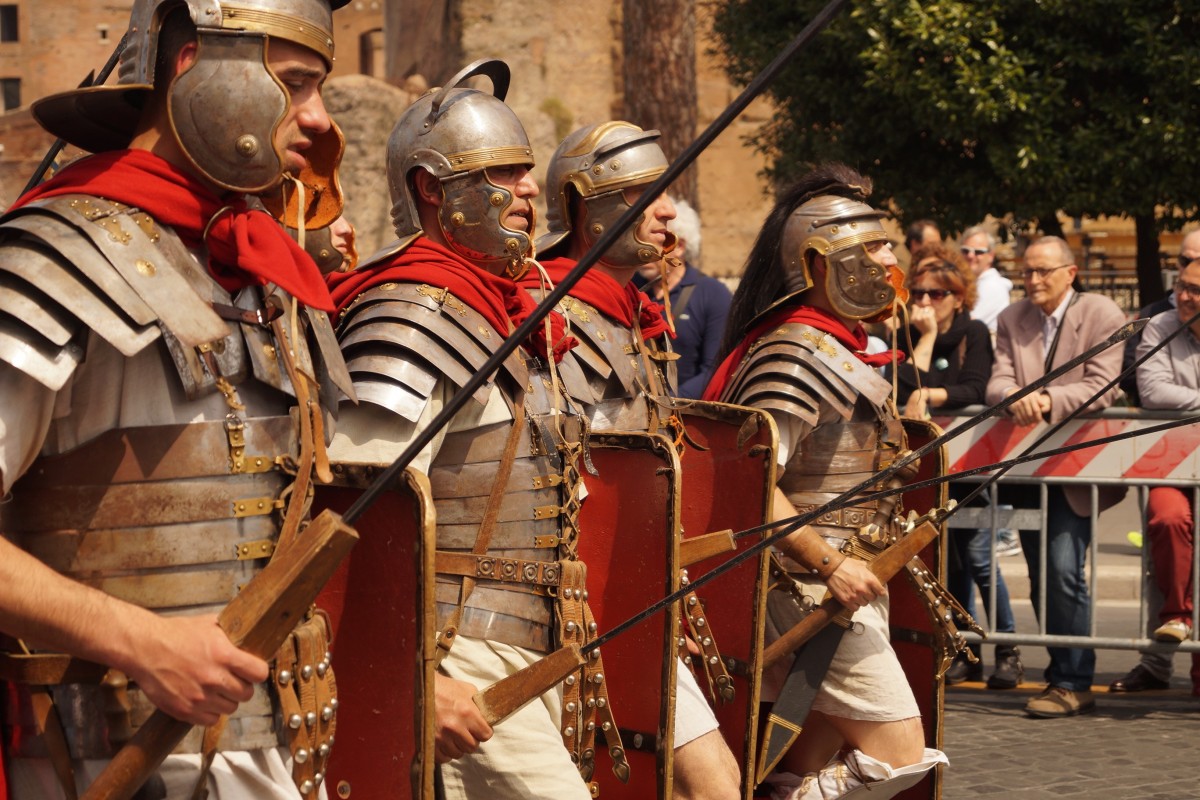A recent social media trend revealed a rather distressing gender disparity: apparently, men frequently think about the Roman Empire.
At first glance I thought of this as a social media trend that seemed eerily tailored to appeal specifically to me. I’ll readily admit to being a Romanophile who thinks about ancient Rome nearly every day.
Then, I realized it is weird this trend was divided along gender lines. It never occurred to me that a love of all things ancient Rome would’ve had such a noticeable gender disparity. Sure, that might’ve been the case when classicism began to develop as a discipline, but nowadays it’s no longer exclusively the boys’ club.
Even Mary Beard, who I’d consider one of the world’s foremost classicists, chimed in on the trend.
“[The] Roman Empire is a sort of safe space for being macho in, you imagine that it’s so long ago, you can indulge your macho fantasies without it really mattering, I think is what’s going on there,” she said.
I think there’s a lot of merit to what Beard had to say about the trend. In fact, I’d even imagine the Romans themselves would agree. A big part of ancient Roman culture was adherence to a set of moral virtues, many of which we’d identify as masculine, such as military discipline.
When we think of ancient Rome, many of us will likely imagine legions of scarlet-adorned troops marching off into battle against barbarian hordes. Perhaps we imagine the deafening roars of the crowd at the Colosseum as muscle bound men fight to the death for the entertainment of the masses.
Of course, that’s merely one interpretation of the phenomenon. Dr. Denvy Bowman, president emeritus and professor of history at the university, instead suggests “[p]erhaps it has something to do with the density of populations in modern countries where the Romans once ruled. If I passed by the Colosseum often, I’d probably think about the Romans often.”

The Roman Empire once encompassed much of western Europe, northern Africa and the Levant, leaving their mark wherever they went. Many of the buildings they erected and the roads they laid down still remain in use today, a testament to their engineering prowess.
Even so, that doesn’t quite fully account for the apparent gender disparity in thinking about the Roman Empire.
If you ask me, this disparity shouldn’t exist at all! Ancient Rome is far too fascinating a period to be merely reduced to macho men clobbering barbarians. The Roman Empire was a massive multicultural empire with hundreds, if not thousands, of ethnicities living within its borders. It wasn’t an empire of Romans, it was an empire ruled by Romans.
Honestly, I think everyone should think about the Roman Empire frequently, for several reasons.
Chief among them is quite literally staring you in the face: the English alphabet, which is almost entirely derived from the Latin alphabet, save for a few additional letters.
Additionally, many English words have roots in the Latin language, particularly ones adopted from French, such as “cohort,” “emperor” and “imperial,” to name a few.
Several European languages, such as the aforementioned French language, as well as Spanish and Italian are ultimately descendants of regional dialects of Latin.
Legal concepts, such as the presumption of innocence, have their roots in Emperor Justinian’s formal codification of Roman law. In fact, many legal systems in Europe are derived from Roman civil law.
Even American courts often reference Roman law, including the infamous 1857 Dred Scott v. Sanford Case, whereby one of the justices drew parallels between Roman and American laws on slavery.
This is not an exhaustive list by any means, but it does highlight the influence that ancient Rome has had on the modern world, even in ways which aren’t immediately noticeable.
As Beard said, “the Roman Empire is a bit more interesting than perhaps [men] think it is.”
Next time you’re pondering about your favorite historical period, consider sparing a thought for the Romans.


